Search results for 'The And'
-
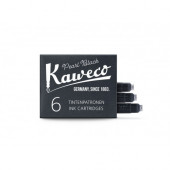
Kaweco Ink Cartridges, Pack of 6
Starting at: £2.00
Kaweco ink cartridges are Standard International size. There are 6 cartridges per pack. Learn More -
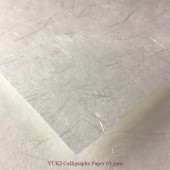
Japanese Calligraphy Paper
Starting at: £3.05
Call to Order
Shoji: machine-made paper, 100% woodfree pulp, pH 6.2. Bright white, slightly smooth on one side. 48 gsm, size: 62 x 92 cm (24 x 36 inches). Pack of 25 sheets. Yuki: machine-made paper, 59% Rayon, 37 % woodfree 4% synthetic fibre, pH 6.2. size 64 x 94 cm (25 x 37 inches) Pack of 25 sheets. White, long Rayon fibres randomly on surface. slightly smooth on one side. Learn More -
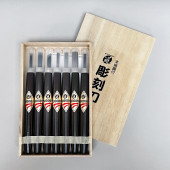
Japanese Classic Tool Set in Wooden Case
£34.00Tool set with denim case. Set contains 7pcs, including; 7mm Aisuki (flat), 8mm Hangi-toh (knife), 4mm Aisuki (flat), 6mm Komasuki (U), 3mm Komasuki (U), 4mm Sankatu-toh (V), 10mm Komasuki (U). These pencil-style tools have imitation wooden handles that are longer than those of traditional tools, making them a perfect introduction to Mokuhanga printing. Learn More -
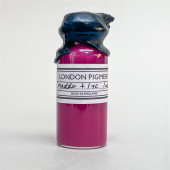
London Pigment, Purple Madder and Lac Ink, 20 ml
£12.50Call to Order
Madder and Lac Ink ****Please note, these pigments are artisan made in small batches. Please email info@cornelissen.com for availability**** Learn More -
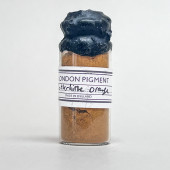
London Pigment, Rotherhithe Orange Pigment
£20.00Call to Order
This unique colour is an intense orange oxide that is made from the decay of Victorian pipes mixing with the chalk bed of the infilled docks at Rotherhithe, in south east London. Rotherhithe has a long history as a port, with many shipyards from Elizabethan times until the early 20th century and with working docks until the 1970s, when they began to be infilled due to a decline in imports to Central London. With a fine particle size and transparent quality this pigment would be great for glazing techniques.
Follow @londonpigment on Instagram for an insight into the stories behind the colours and how she makes them.
****Please note, these pigments are artisan made in small batches. Please email info@cornelissen.com for availability**** Learn More -
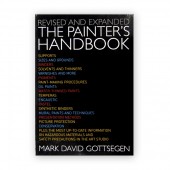
Painter's Handbook
£25.00Call to Order
By Mark David Gottsegen. A guide to artists’ materials as well as a thorough resource presenting techniques for using them and recipes for making them. (355 pages) Learn More -
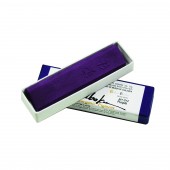
Japanese Coloured Sumi Ink
Starting at: £10.00
Call to Order
Japanese Coloured Sumi Ink. These coloured sumi inks create vivid shades that can be mixed and used with black sumi stick inks. It is recommended that they be ground using a white grinding stone as opposed to the traditional grey stone. Learn More -
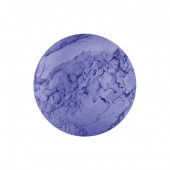
Lapis Lazuli Pigment
Call to Order
PB29
Lapis Lazuli is a natural mineral pigment, mined in Afghanistan and South America. For many centuries it was the most reliable blue pigment available, and became particularly significant during the Medieval and Renaissance periods, when its inclusion in a work of art denoted the wealth and status of the patron, or the holiness of a painting's subject. In commercial paint production it has largely been replaced by the more affordable Ultramarine Blue, although it still has a place on modern palettes due to its unique soft violet tone. It is a transparent pigment, with a low tinting strength.
[We will have stock of Lapis Lazuli in September. If you would like to be called when it is available, please use our contact form to let us know.]
Learn More -
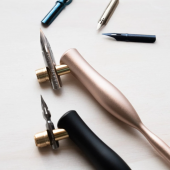
Tom's Studio, Flourish - Oblique Calligraphy Pen holder, Black
Starting at: £55.00
Call to Order
The Flourish is precision machined from a solid Aluminium bar meaning that it will last a lifetime and give you just the right amount of weight without feeling too heavy. This unique design fits nibs as large as a Nikko G, all the way down to smaller nibs like the Brause 66EF, as well as 3.5mm pencil lead, so you can draft your creations before committing to ink. This holder is designed so that you can easily customise the angle of the nib to suit your calligraphy style. The balance of the pen has been refined so that the centre of gravity sits between your forefinger and your thumb joint, making it feel neither top nor bottom heavy. Learn More -
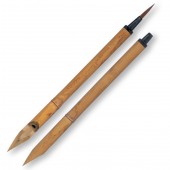
Bamboo Pen with Brush
£5.40Call to Order
Dip pen at one end, reversible brush at the oter end. Learn More -
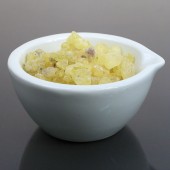
Gum Mastic
Starting at: £20.30
Call to Order
Gum Mastic is a tree resin, which dissolves into a clear varnish with alcohol or turpentine, but not with mineral spirits. Mastic varnishes are more prone to blooming and darkening with age than damar-based varnishes, and painting mediums that contain gum mastic can deteriorate in unpredictable ways. For this reason, it is primarily used in restoration, rather than in the production of artwork. Learn More -
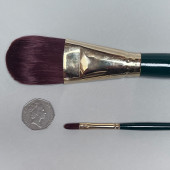
Roberson Interlon Series 64 Filbert
Starting at: £5.60
Call to Order
Made with new improved brown interlocking tapered filaments, these brushes have an excellent shape retention and firm texture. Good spring. Gold colour ferrule with bottle green handle. *AWAITING ARRIVAL OF NEW STOCK* Learn More -
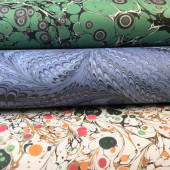
Printed Marble Papers
Starting at: £3.00
Call to Order
Printed with UV ink the colours are sharper and brighter and better reflect the look and detail of real marbled papers. These are printed on 100gsm Munken that is FSC Certified and acid free. It is very tactile and of an excellent quality. Paper size is 500mm x 700mm. Minimum order of 10 assorted sheets. Learn More
-
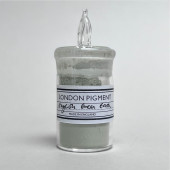
London Pigment, English Green Earth
£30.00Call to Order
Prepared by hand and bottled in a rare, hand-blown laboratory glass Weighing Bottle. 20 ml. Gently twist the hand-formed, flame-like stopper and pull carefully to open. ****Please note, these pigments are artisan made in small batches. Please email info@cornelissen.com for availability**** Learn More
-
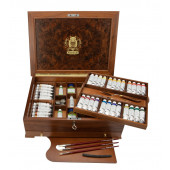
Mussini Luxury Wooden Chest
£1,442.95Call to Order
The Schmincke Mussini Luxury Wooden Chest contains 36 x 35 ml tubes, as well as many accessories, including palette knife, painting knife, palette cups, palette, mediums, charcoal and brushes. Learn More -
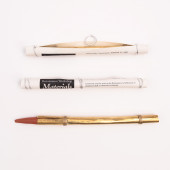
Porte-Crayon Brass Holder, Renaissance Workshop Materials
£48.50Call to Order
Handmade Porte-Crayon in brass for holding chalk or charcoal. Commonly used by artists in the Renaissance for drawing, the piece of sharpened chalk or charcoal is inserted into the end of the holder and secured in place by a sliding ring. Learn More -
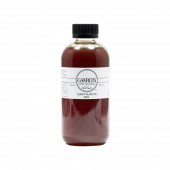
Gamblin Burnt Plate Oils
Starting at: £10.50
Call to Order
Burnt Plate Oils are used to lower the viscosity of the ink. Burnt Plate Oil should be added to inks sparingly, as the detail of a print may be lost if the ink becomes too fluid. Burnt Plate Oil #000 has less tack and is a good match for use with Gamblin Relief Inks. Burnt Plate Oil #2 has a higher tack and is the primary oil binder for Gamblin Etching Inks. Learn More -
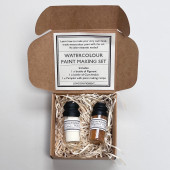
London Pigment, Watercolour Paint Making Set
£35.00Call to Order
This watercolour paint making set includes a 30ml glass vial of gum Arabic crystals and another of Hampstead Orange, a pigment rich in iron oxide. A pamphlet detailing a a watercolour recipe and an introduction to London pigment is also included. The perfect gift for artists getting into making their own art materials or those interested in handmade British earth colours. The pigment itself has a fine to medium grain size and has been washed, levigated and ground to create a stable high quality artist’s pigment.
Learn More -
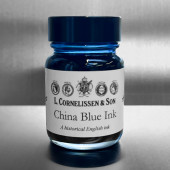
Cornelissen Historical Inks, China Blue
£6.50Call to Order
Formulated from the same dye that was used to colour blue and white china, this ink is a deep, rich blue. Used at full opacity, it is a blue-black, and dilutes down to wonderful cold blue washes. As it is dye-based, it is not fully lightfast. Learn More -
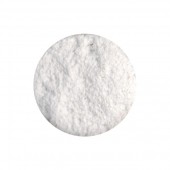
Flake White Pigment
Starting at: £18.75
Call to Order
PW1
Flake White Pigment, sometimes referred to as Lead White or Cremnitz White, is an artificial mineral pigment, lead carbonate. It is no longer available as a paint, due to its extreme toxicity. For this reason, great care must be taken when handling the dry pigment.
Lead is a highly poisonous metal which, if inhaled, ingested, or introduced to the blood through cuts in the skin, builds up in the body and can affect multiple parts of the body, including the digestive and nervous systems.
PERMITTED USES: Restoration of art works and protected buildings when alternatives unsuitable.
IMPORTANT: Please refer to the MSDS (Material Safety Data Sheet) below.
SHIPPING: Please note, we are not able to send this product outside the UK.
Learn More -
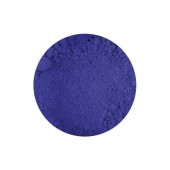
Cobalt Blue Pigment
Starting at: £6.50
Call to Order
PB28
Cobalt Blue is an artificial mineral pigment, produced by the calcination of cobalt oxide and aluminium oxide. It has been widely used since the early 1800s, following its discovery by the French chemist Thenard at the beginning of the century. The name Cobalt has its roots in the German word Kobold, meaning imp or evil spirit. German miners specifically used this name in the late-Middle Ages, as the presence of Cobalt ore in the mines made the extraction of silver very difficult. They were possibly aware of the toxic properties of the mineral frustrating their efforts.
Cobalt remains a very popular colour today, and is present in most ranges of paints, being a semi-transparent pigment that is stable in all media. As a watercolour, all cobalt pigments tend to granulate. As an oil paint, it requires less oil content than most other pigments, and dries quite quickly. Like Cerulean Blue, some artists may choose to bind it with poppy oil, to avoid any possible colour changes brought about by the yellowish cast of linseed oil and the pigment's weak tinting strength.
Limeproof
Toxicity: C
Learn More -
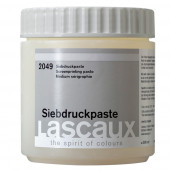
Lascaux Screenprinting Paste 500ml
£29.00Call to Order
Lascaux Screenprinting Paste was designed to be used in conjunction with Lascaux Colours as part of a non-toxic, waterbased programme for screenprinting that would not only meet the demands of health and safety regulations but also offers a high standard of reproduction and an ease of use. Furthermore, all the qualities of the existing Lascaux colour ranges can be exploited: a wide range of colours, intensity of hues, colour permanence etc. The additional range of mediums and varnishes, further lends surprising versatility to the system. Learn More -
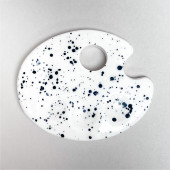
Lilian May, Mini Ceramic Palette
£12.00Call to Order
Ceramic palette, 4 wells, 8 cm x 8 cm Handmade in Somerset, UK. Learn More -
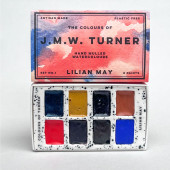
Lilian May, J.M.W. Turner Watercolour Box Set, 8 Wells
£40.00Call to Order
Box Set Dimensions 9 cm x 5.5 cm Utramarine PB29 Burnt Umber PBR6 Genuine Madder NR9 Vermilion PR4, PY1, W21 Mars Orange PY42, PR10 Indigo NB1 Yellow Ochre PY43 Prussian Blue PB27. Learn More -
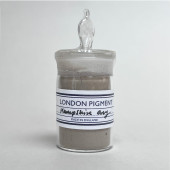
London Pigment, Hampshire Grey
£30.00Call to Order
Pigment collected from erosion. ****Please note, these pigments are artisan made in small batches. Please email info@cornelissen.com for availability**** Learn More -
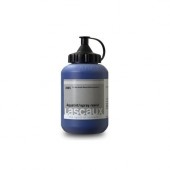
Lascaux Aquatint Spray Resist 500ml
£45.60Call to Order
This coloured resist is sprayed onto the plate to create a range of controllable tonal effects. It may be used in conjunction with Lascaux Lift solution, other lift methods, stencils and Lascaux Wash resist. Learn More -
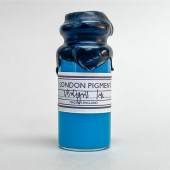
London Pigment, Verdigris Ink, 20 ml
£12.50Call to Order
Ink made from pure copper metal leaf that has reacted with distilled vinegar. ****Please note, these inks are artisan made in small batches. Please email info@cornelissen.com for availability**** Learn More -
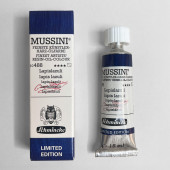
Schmincke Mussini Limited Edition Lapis Lazuli 15 ml
£28.00Call to Order
Schmincke Mussini Limited Edition Lapis Lazuli 15 ml Learn More -
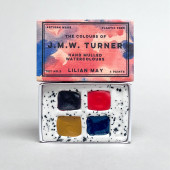
Lilian May, J.M.W. Turner Watercolours, Matchbox Set, 4 Wells
£20.00Call to Order
Matchbox Set Dimensions 5.5 cm x 3.5 cm Prussian Blue PB27 Yellow Ochre PY43 Vermilion PR4, PY1, W21 Genuine Madder NR9 Learn More -
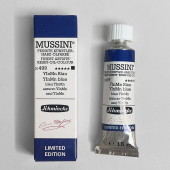
Schmincke Mussini Limited Edition YInMn Blue 15 ml
£26.00Call to Order
YInMn-Blue is a unique, bright blue Learn More





